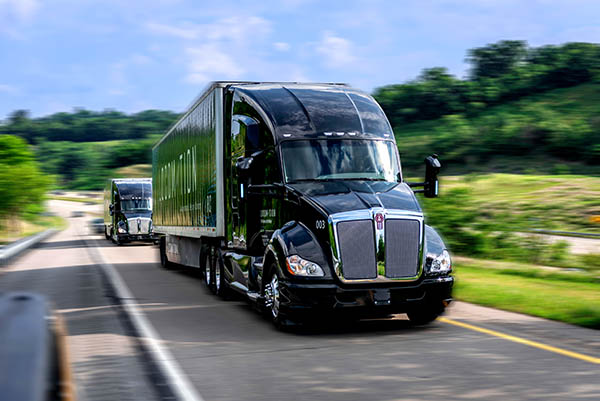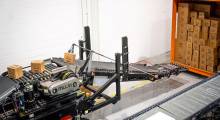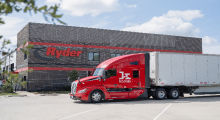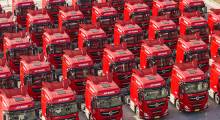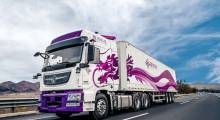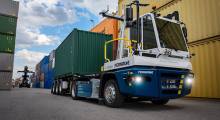Autonomous trucking technology maker Locomation released today a greenhouse gas projections analysis that shows a major reduction in carbon dioxide with the adoption of Locomation’s Autonomous Relay Convoy system, or ARC.
Even a conservative adoption of ARC on just 25,000 Class 8 trucks running on Locomation’s 68 Autonomous Relay Network (ARN) interstate highway segments by 2030 would yield savings equal to the amount of CO2 emitted from 2 million passenger vehicles annually, according to the report.
The analysis, prepared by Boundless Impact Research and Analytics Inc., used the company’s market-penetration projections along with anticipated changes to powertrain technologies over this time period.
Key findings
The cumulative greenhouse gas (GHG) emissions avoided due to the projected deployment of Locomation’s ARC technology is estimated to exceed 8.5 million tons of CO2e over the nine years. It is equivalent to the carbon sequestered by 10.5 million acres of U.S. forest during a year—about 3 times the size of the state of Connecticut— or removing 2 million passenger vehicles from the road during 1 year.
“Locomation’s technology offers a viable short-term solution to reduce Scope 1 and 3 emissions,” said Çetin Meriçli, co-founder and CEO of Locomation. “It is an immediate pathway to reducing the supply chain's CO2 footprint and would be a big boost to any shipper’s bottom line.”
According to an earlier study by Boundless, traditional Class 8 trucks equipped with the Pittsburgh-based company’s autonomous trucking technology would:
- Reduce the GHG footprint of freight transportation by 22%
- Cut operating costs by 19%
- Decrease fuel consumption by 21%
- Lower photochemical ozone formation by 22%
- Reduce the GHG abatement cost, or dollars per tonne of avoided greenhouse gas emissions, below any of the alternatives considered
These conclusions were based on freight optimization, reducing idling and empty miles and ARC improving fuel efficiency, the company said.
Article topics
Email Sign Up

